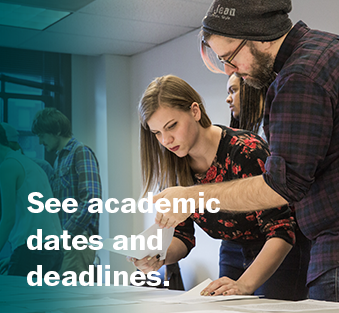For more information, visit our Cost of Attendance page.
Your cost of attendance is calculated by the number of credit hours you are enrolled in each semester and your living situation (on-campus, off-campus, or at home with your parents).
It is meant to provide you with a reasonable cost of living while you attend classes or participate in academic activities. If you are a full-time student, your cost of living expenses are based on your enrollment as a full-time student; if you are a part-time student, your cost of living expenses are based on your enrollment as a part-time student.
